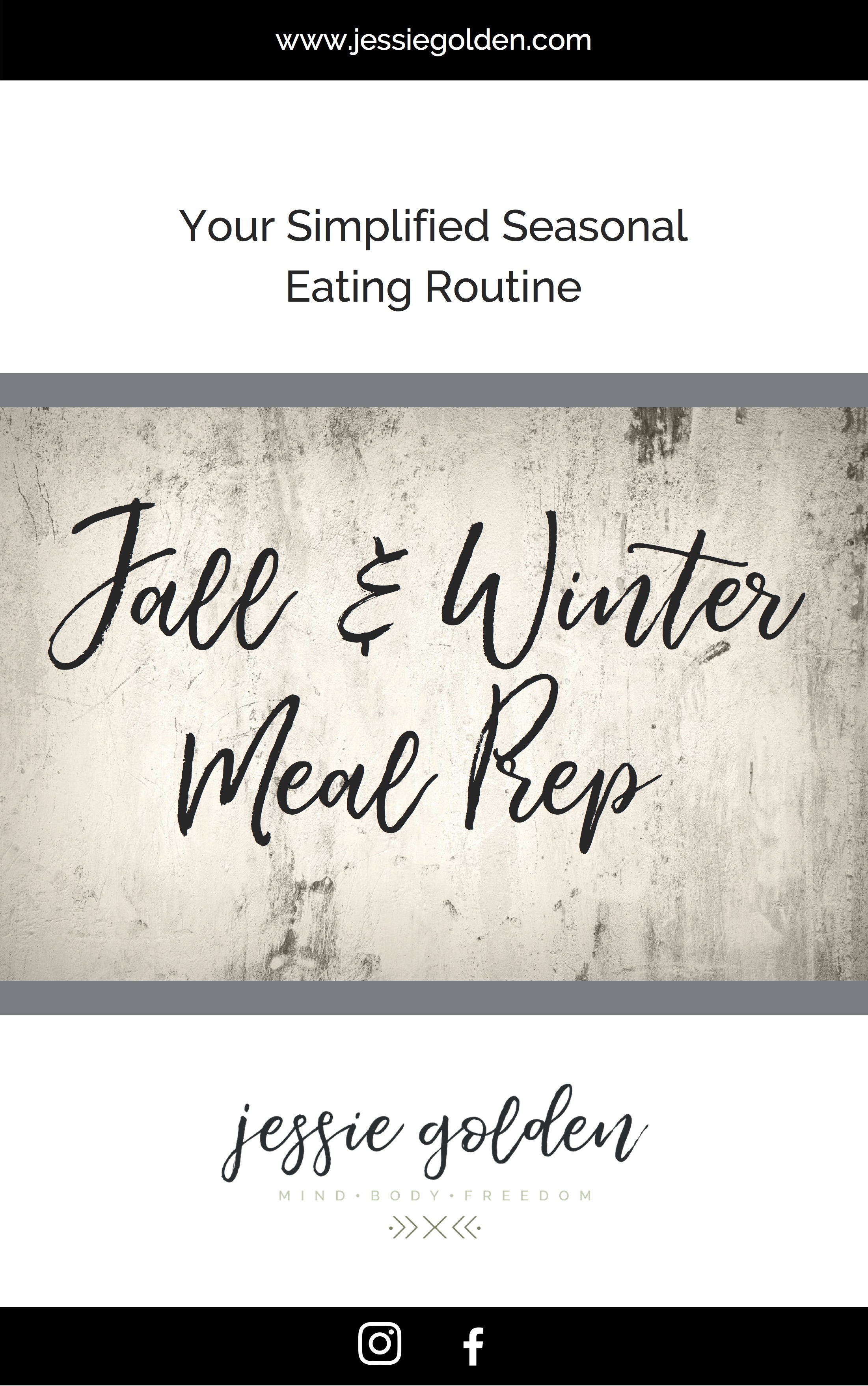Meal Prep - Why I do it & How to Overcome Common Roadblocks
/Get your FREE guide to seasonal meal prep when you sign up for my newsletter here!
Meal prep. These words evoke various responses from people, ranging from dedication to disgust. And I get it, as my own responses and opinions have run the gamut too. Preparing my food ahead of time for the week used to be an integral part of my food and body obsession; it was a sure way to exercise control externally during a time when my internal world was in disarray. Now, however, I use meal prep as part of my self-care regimen, and my motivation comes from a place of love and respect for myself. Additionally, I simply think the food I make tastes better than most takeout options, it’s more budget friendly, and it’s a huge time saver throughout the rest of my week. What’s not to love?
Well, there are a few things people don’t love about it, at least at first glance:
· The time and effort it takes to actually cook the food: If you’re not familiar with cooking and haven’t spent much time in the kitchen, then I understand how the thought of cooking a few days’ worth of food can seem daunting. Using complicated, messy, and time-consuming methods will not only seem daunting, they will be. That’s why I’m such a big believer in using short cuts whenever and wherever we can. Some short-cut food items may cost a bit more, but to me, time is more valuable than a slight differential in cost. What does this look like in action? Purchase pre-cut vegetables and those you can steam in the bag, roast as many things as possible in the oven to reduce cleanup and save time, and use an Instant Pot or Crockpot. When roasting several items in the oven, I don’t get too caught up in temperature variances for vegetables, potatoes, squash, etc., as they’re more forgiving than meats. For example, it may be more ideal to roast potatoes at a lower temperature than brussel sprouts, but the difference is fairly insignificant. Especially if we can kill two birds with one stone. It can take time to feel comfortable with this, but with some experience, you’ll get there!
· Boredom with meals: This is a big one for most people, as it is for me. I overcome this by prepping individual meal components 90% of the time, and I may throw an actual “meal” into the rotation if I’m craving something in particular (chili, frittata, casserole, etc.). Individual meal components include proteins, vegetables, and carbohydrates. They are prepared separately and then mixed and matched throughout the week.
· Little room for spontaneity: This is true if we’re using meal prep as a method of control. Ideally, we want to use it to facilitate the ease of eating healthy and delicious food throughout the week while also leaving room for spontaneity and meals out if desired. My weeks tend to be rather busy, so I usually make plans ahead of time on weeknights. Therefore, I’ll make less food for the week if I’ll be eating out a few nights. Conversely, if something pops up last minute, I roll with it and go! Simple as that. Sure, a meal’s worth of food might go bad, but it’s really not a big deal in the long run. I completely understand the willingness to eliminate food waste, as I do myself, but it’s a sunk cost at that point. And we’re doing the best we can with the information we have at the time. This brings me to my next point.
· Wasting food: I know many people who have a meal plan in hand, purchase a ton of food, and then never get around to actually cooking it. Thus, all of the food spoils. There are likely several factors at play that are contributing to the resistance to actually cooking the food, including buying and purchasing food you’re not excited about (i.e. someone else is dictating your food choices), feeling as though you need to weigh, measure, and pre-portion everything (you shouldn’t), not carving out the time to cook, or not making the cooking process enjoyable. First, you should only eat things you enjoy, period. Secondly, if you’re attempting to jump head first in a macro counting plan that requires you to weigh, measure, and pre-portion your food when you don’t have experience cooking, then of course you’re going to feel overwhelmed! You should also ask yourself if you need to be weighing and measuring your food to begin with (let’s talk). Thirdly, you’ll have to move things around in your schedule to carve out 1-2 hours. It may seem like a hassle at first, but it will become part of your routine like everything else after some consistency. Lastly, we need to find a way to make the process of cooking enjoyable for YOU, and that will look different for everyone.
· I hate cooking: This is an easy out. Many people resort to this response, and I later discover it’s due to their complete lack of experience with cooking. Most things are difficult when we start without experience, and similarly to those challenges, it becomes easier with time and practice. And with ease comes greater enjoyment. I too experienced the frustration and clumsiness that comes with not knowing one’s way around a kitchen, but it’s now a source of relaxation and a way to clear my head. I throw on some tunes or a podcast, and I’m good to go! Stick with it, and I promise it will become easier.
While I love meal prep during this time in my life, I can’t sit here and claim that it will always be a staple in my life. And I don’t believe it’s for everyone. I’m a huge believer in making your healthy habits suit you and your individual lifestyle, and there are certainly workarounds for those who either have conflicting priorities (I.e. demanding family and/or work obligations) or detest cooking even after giving it a fair shot. However, for those of us who want to save some money, learn how to cook, and want healthy and delicious food available throughout the week, then this might be the golden ticket! My hope is that everyone discovers their own personalized ways of making this process fit into their lifestyles in an enjoyable and feasible way. You can get started with my seasonal meal prep guide you get for FREE when you sign up for my newsletter here!









